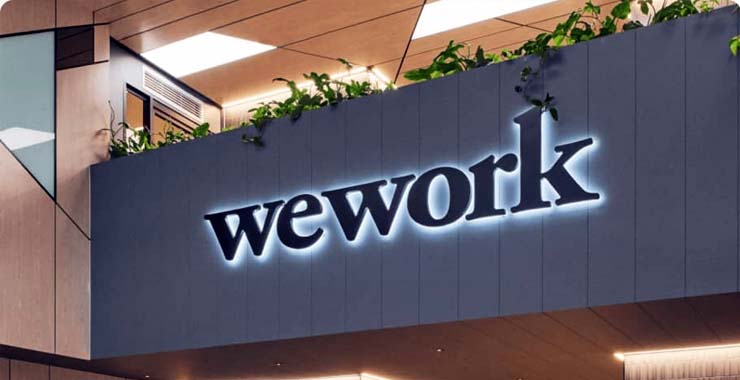WeWork, the ambitious startup backed by SoftBank Group, which once held the title of the most valuable U.S. startup, has filed for bankruptcy protection in the United States. The company’s meteoric rise and subsequent fall have sent shockwaves through the global office-sharing industry.
The bankruptcy filing represents a significant admission by SoftBank, the Japanese technology giant that owns roughly 60% of WeWork. Despite investing billions of dollars in its turnaround efforts, SoftBank now acknowledges that WeWork’s survival hinges on renegotiating its costly leases under the protection of bankruptcy proceedings.
The road to profitability for WeWork has proven elusive, as the company grapples with the financial burden of expensive leases. In the second quarter of 2023, an astonishing 74% of WeWork’s revenue went toward covering these lease expenses.
According to the bankruptcy filing, the company’s estimated assets and liabilities range from $10 billion to $50 billion. This situation opens the door for WeWork to utilize provisions within the U.S. bankruptcy code to alleviate the burdensome leases.
Legal firm Cadwalader, Wickersham & Taft LLP, in a note to landlords posted on its website back in August, suggested that “WeWork could use provisions of the U.S. bankruptcy code to rid itself of onerous leases.” This has left some landlords bracing for a significant financial impact.
Under the leadership of its founder, Adam Neumann, WeWork reached the pinnacle as the most valuable U.S. startup, boasting a valuation of $47 billion. It attracted investments from prestigious names, including SoftBank, Benchmark, JPMorgan Chase, and other major Wall Street banks.
However, Neumann’s pursuit of rapid expansion at the expense of profitability, combined with revelations about his unconventional behavior, led to his ouster and the derailment of WeWork’s initial public offering in 2019.
SoftBank was compelled to double down on its investment in WeWork and installed real estate expert Sandeep Mathrani as the startup’s CEO. In 2021, SoftBank negotiated a merger with a blank-check acquisition company to take WeWork public at an $8 billion valuation.
Although WeWork managed to revise 590 leases, saving approximately $12.7 billion in fixed lease payments, these efforts could not offset the economic fallout from the COVID-19 pandemic, which forced office workers to remain at home.
Compounding its challenges, WeWork faced competition from its very own landlords. Commercial property companies, which had traditionally only engaged in long-term rental agreements, began offering short and flexible leases to adapt to the evolving landscape of the office sector.
In 2023, David Tolley, a former investment banker and private equity executive who previously played a pivotal role in the successful restructuring of Intelsat, succeeded Mathrani as WeWork’s CEO.
Despite multiple debt restructurings, WeWork found itself unable to avert bankruptcy. In the previous week, the company secured a seven-day extension from its creditors for an interest payment, granting it more time to engage in crucial negotiations.



![[CITYPNG.COM]White Google Play PlayStore Logo – 1500×1500](https://startupnews.fyi/wp-content/uploads/2025/08/CITYPNG.COMWhite-Google-Play-PlayStore-Logo-1500x1500-1-630x630.png)